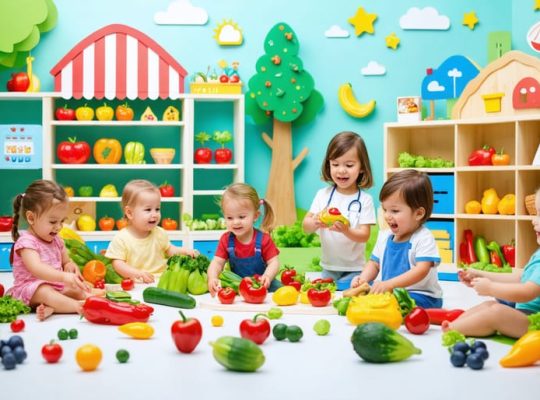Educate your child about the risks of substance abuse through open, honest conversations. Explain how drugs and alcohol can negatively impact their health, relationships, and future opportunities. Use age-appropriate language and real-life examples to make the information relatable and memorable.
Model responsible behavior by avoiding excessive drinking, never driving under the influence, and refraining from drug use. Children learn by observing their parents’ actions, so consistently demonstrate the healthy habits you want them to adopt. Discuss your own experiences and the lessons you’ve learned about substance use.
Set clear boundaries and expectations regarding substance use. Establish family rules, such as zero tolerance for underage drinking or drug experimentation. Consistently enforce consequences for rule violations while maintaining a supportive, understanding approach. Help your child develop strategies for resisting peer pressure and making responsible choices.
Monitor your child’s activities, friends, and whereabouts. Stay involved in their daily life and maintain open lines of communication. Watch for warning signs of substance abuse, such as changes in behavior, declining grades, or new friend groups. If concerns arise, seek professional help early to prevent the problem from escalating.
Educate Yourself and Your Child
Age-Appropriate Conversations
When it comes to substance abuse prevention, it’s crucial to have age-appropriate conversations with children. For young children, focus on basic health and safety messages, such as never taking medicine without adult supervision. As kids enter middle school, discuss the risks of drug experimentation and peer pressure. Be open and honest, talking to children about drugs in a non-judgmental way. With teenagers, have frank discussions about the dangers of specific substances and the long-term consequences of abuse. Encourage questions and maintain an ongoing dialogue. Remember, the goal is to empower children with knowledge to make healthy decisions, not to scare them. Tailor your approach to your child’s maturity level and unique needs, fostering a safe, supportive environment for these important conversations.
Encourage Open Communication
Creating a safe, non-judgmental environment is essential for encouraging open communication about substance abuse. Start by letting your child know that they can come to you with any questions or concerns, without fear of punishment or shame. Listen actively and empathetically when they share, focusing on understanding their perspective. Avoid lecturing or criticizing, and instead ask open-ended questions to keep the conversation flowing. Assure them that their feelings are valid and that you’re there to support them through any challenges. If they’re not ready to talk, remind them that you’re always available when they need you. Regularly check in and create opportunities for casual, pressure-free discussions. By fostering a warm, accepting atmosphere, you’ll help your child feel more comfortable seeking guidance and support in navigating the complex issues surrounding substance use.

Set Clear Expectations and Consequences
Setting clear expectations and consistently enforcing consequences is a crucial part of preventing substance abuse in children and teens. As a parent, it’s important to establish firm family rules around alcohol, tobacco, and drug use from an early age. Sit down with your children and explain your stance on substance use in an age-appropriate way. Be specific about what is not allowed and why.
It’s equally important to outline the consequences for breaking these rules ahead of time. Consequences should be fair, proportionate to the offense, and consistently enforced. For example, if you catch your teen drinking alcohol, follow through with the agreed-upon consequence, such as loss of privileges or additional responsibilities.
Consistency is key when it comes to consequences. If you let things slide or make exceptions, your child may not take the rules seriously. It’s also important that all caregivers in the household are on the same page and enforce consequences uniformly.
Remember, the goal of consequences isn’t to punish your child but to teach them about the negative impacts of substance use and help them make better choices in the future. Pair consequences with open, non-judgmental conversations about the risks and your concerns for their health and well-being.
By setting clear expectations and consistently enforcing consequences, you send a strong message to your child that substance abuse is not tolerated in your family. This structure and accountability can be a powerful protective factor in preventing experimentation and addiction down the road.
Foster Healthy Habits and Coping Skills

Encourage Extracurricular Activities
Encouraging extracurricular activities is a powerful way to help children develop a strong sense of self and healthy coping mechanisms. Hobbies like art, music, or theater provide creative outlets for self-expression and boost self-esteem. Participating in sports teaches teamwork, discipline, and resilience while promoting physical health. These activities also connect children with positive peer groups and mentors who can offer guidance and support. By helping kids discover their passions and talents, parents can foster a sense of purpose and belonging that reduces the appeal of substance use. Extracurricular involvement also fills free time constructively, leaving less opportunity for risky behaviors. Supporting children’s interests and celebrating their achievements, no matter how small, shows them that they are valued for who they are. When kids feel good about themselves and have a strong support system, they are better equipped to navigate the challenges of growing up and make healthy choices.
Teach Mindfulness Techniques
Teaching kids simple mindfulness techniques can help them regulate their emotions and cope with stress in healthy ways. Deep breathing exercises, like taking slow breaths while counting to five, can calm the body and mind. Guided imagery, such as picturing a peaceful scene, engages the senses and promotes relaxation. Encourage children to practice mindful awareness by focusing on the present moment without judgment, noticing their thoughts and feelings. Through games and activities, kids can learn to identify and express their emotions constructively. Mindfulness apps designed for children offer fun, accessible tools for building these skills. By incorporating mindfulness into daily routines, like before bedtime or during transitions, children develop valuable self-regulation abilities that support their overall well-being and resilience. Modeling mindfulness yourself and creating a supportive environment fosters the development of these protective skills. Remember, every child is unique, so be patient and adapt techniques to their individual needs.
Monitor and Limit Access
To prevent children from accessing substances that could lead to abuse, parents should take proactive steps to safely store medications, alcohol, and other potentially harmful items. Keep prescription drugs in a locked cabinet or safe, and properly dispose of unused or expired medications. Store alcohol in a secure location that is out of reach for kids. It’s also important to monitor your child’s activities and friend groups. Get to know their friends and their friends’ parents. Talk openly with your child about their social life, interests, and any concerns they may have.
Pay attention to changes in behavior, friend groups, or academic performance that could indicate a problem. Set clear expectations around substance use and enforce consistent consequences for breaking rules. Spend quality time together as a family and encourage open, honest communication. Regularly check in with your child about their experiences and challenges. By staying engaged in your child’s life, you can spot potential issues early on and intervene before substance abuse develops. Remember, prevention starts with a strong, supportive family foundation built on trust, communication, and clear boundaries.
Model Responsible Behaviors
Parents play a crucial role in shaping their children’s attitudes and behaviors towards substance use. Children often learn by observing and imitating the adults in their lives, making it essential for parents to model responsible behaviors when it comes to alcohol, tobacco, and other substances. Research has consistently shown that children whose parents engage in substance use are at a higher risk of developing substance abuse issues themselves.
To set a positive example, parents should be mindful of their own substance use habits and attitudes. This may involve limiting alcohol consumption, avoiding smoking or using tobacco products around children, and refraining from discussing substance use in a positive or glamorizing manner. It’s important for parents to be honest with their children about the potential risks and consequences of substance abuse while maintaining an open, non-judgmental dialogue.
In addition to modeling responsible behaviors, parents can also actively engage their children in discussions about substance use. By providing accurate, age-appropriate information and encouraging critical thinking, parents can help their children develop the skills and knowledge needed to make informed decisions about substance use. This may involve discussing peer pressure, the importance of setting personal boundaries, and strategies for coping with stress and anxiety in healthy ways.
Ultimately, by demonstrating responsible substance use habits and fostering open, honest communication, parents can play a vital role in preventing substance abuse and promoting their children’s overall health and well-being. Remember, children are always watching and learning from the adults in their lives, making it crucial for parents to lead by example and prioritize their own health and well-being.

Know When to Seek Help
It’s crucial for parents, teachers, and caregivers to be vigilant and recognize the signs that a child may be struggling with substance abuse. Some red flags include sudden changes in behavior, such as increased secrecy, withdrawal from family and friends, declining academic performance, and loss of interest in hobbies or activities they once enjoyed. Physical signs like bloodshot eyes, unexplained injuries, or changes in sleep patterns and appetite may also indicate a problem.
If you suspect a child is using drugs or alcohol, it’s essential to approach the situation with compassion and understanding. Start by having an open, honest conversation with the child, expressing your concerns and offering support. Avoid accusations or judgment, as this may cause the child to become defensive or withdraw further.
Seeking professional support is a critical step in helping a child overcome substance abuse. Reach out to a mental health professional, such as a therapist or counselor specializing in adolescent substance abuse, who can provide guidance and treatment options. They can help assess the severity of the problem and develop an individualized treatment plan that may include therapy, support groups, and medication if necessary.
Remember, early intervention is key in preventing substance abuse from escalating and causing long-term harm. By staying informed, maintaining open communication, and seeking help when needed, parents and caregivers can play a vital role in protecting children’s health and well-being.
Conclusion
In conclusion, protecting our children from the dangers of substance abuse requires a multi-faceted approach that combines education, open communication, clear boundaries, positive role modeling, and early intervention when needed. By staying engaged in our children’s lives, fostering their self-esteem, and creating a supportive home environment, we can help them develop the resilience and decision-making skills needed to navigate the challenges of adolescence and beyond. Remember, prevention is a ongoing process that requires patience, compassion, and a willingness to adapt as our children grow and change. As parents, teachers, and healthcare professionals, we have the power to make a real difference in the lives of the young people we care about. By working together and staying committed to their well-being, we can help them build a foundation for a healthy, fulfilling life free from the devastating impact of substance abuse. Let us remain vigilant, informed, and proactive in our efforts to protect the next generation from this critical threat to their mental and physical health.







